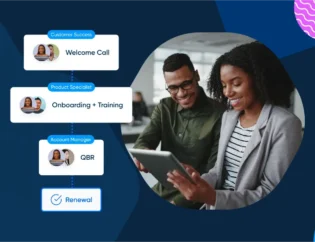
Overcoming Imposter Syndrome: A CFO’s Raw Truth About Self-Doubt
 The numbers are striking – 70% of people deal with imposter syndrome during their careers. Financial leaders often face this challenge because they need to make high-stakes decisions constantly. Studies reveal that imposter syndrome affects 60-80% of working adults. The GrowCFO community confirms this trend, as almost 60% of its members list it among their top three challenges.
The numbers are striking – 70% of people deal with imposter syndrome during their careers. Financial leaders often face this challenge because they need to make high-stakes decisions constantly. Studies reveal that imposter syndrome affects 60-80% of working adults. The GrowCFO community confirms this trend, as almost 60% of its members list it among their top three challenges.
This self-doubt hits entrepreneurs and high achievers harder. The pressure intensifies when you have more responsibility on your shoulders. Research shows that women and minorities struggle with this more frequently. They tend to credit their achievements to good fortune instead of their capabilities. CFOs and financial leaders must overcome these doubts quickly. Their confidence directly impacts business decisions and growth potential.
Let’s talk about real solutions to beat imposter syndrome while leading teams. You’ll learn why accomplished professionals question themselves more than others and discover concrete steps to build lasting confidence in your role as a financial leader.
The hidden cost of imposter syndrome for CFOs
The life of a CFO comes with a hidden cost – the endless battle with self-doubt. Studies reveal that imposter syndrome affects 60-80% of working adults. This effect hits financial leaders particularly hard financial leadership roles.
Why high achievers are more vulnerable
The irony lies in how top performers struggle most with imposter syndrome. Research shows that people dealing with these feelings are usually high achievers who set impossible standards. This “high performer’s syndrome” happens when successful people can’t accept their achievements despite clear proof of their success.
Money leaders often lean toward perfectionism and create unrealistic expectations. They keep comparing themselves to others, worried that small mistakes might erase all their wins. The corporate world makes this worse. Many CFOs got their early training in fields with clear right and wrong answers, which makes the gray areas of executive decisions tough to handle.
The pressure of being the financial leader
The CFO’s job has grown way beyond just working with numbers. Today’s financial leaders juggle multiple pressures – they manage economic ups and downs, meet investor needs, and drive business growth while keeping finances stable.
CFOs work in a high-stakes world where each choice affects company finances, stock performance, and future success. They’re usually one of the youngest executives in the boardroom with less industry experience than other leaders. One finance leader described this feeling as being “a square peg in a round hole”.
How self-doubt shows up in daily decisions
Self-doubt affects day-to-day operations by a lot. Many CFOs hit “decision fatigue” and struggle with basic choices because their minds are overloaded. Others constantly worry about making wrong financial moves.
You can see the mental toll in how they act. Finance leaders might stay quiet in meetings, overthink talks with stakeholders, or hold back significant questions because they’re scared of looking incompetent. This silence flows down through the organization, creating a culture where team members copy their leader’s fear of admitting what they don’t know.
The biggest cost comes from how imposter syndrome drains emotional energy that could accelerate creativity and strategic thinking. One CFO put it this way: “We use up a lot of emotional energy when we think we are not up to the task. This limits your potential by a lot as it reduces your confidence, productivity, motivation and influence”.
6 ways to overcome imposter syndrome as a CFO
After spotting the problem, let’s look at practical solutions to overcome imposter syndrome that tackle the specific challenges CFOs face. Our research shows that almost 60% of the GrowCFO community sees imposter syndrome as one of their top three challenges.
1. Accept that imposter syndrome is normal
About 60-80% of adults deal with imposter syndrome at work. This high number shows just how common these feelings are. Note that even the most successful financial leaders doubt themselves—you’re not alone in this.
2. Stop underestimating your knowledge and experience
Many finance leaders assume others doubt them without asking what people really think. This kind of “mind reading” hurts your confidence. The solution? Make a list of your achievements and look at them often. Don’t brush off your successes as “easy” or something “anyone could have done”.
3. Understand that small business CFO ≠ corporate CFO
A CFO’s role looks very different in small businesses versus corporations. Small organizations need you to handle multiple roles beyond finance. Unlike corporate CFOs with their specialized teams, you might need to do everything from forecasting to succession planning. See this broader scope as an advantage rather than comparing yourself to corporate peers.
4. Build a support network of peers and mentors
Finding a mentor who’s been in your shoes is a great way to get valuable insights. Professional groups give you the chance to meet peers with similar challenges. One financial leader put it well: “I’ve always had a mentor throughout my career”. These connections show you’re not alone and help accelerate your growth.
5. Take action to build confidence through doing
Confidence comes from taking action—not the other way around. When doubt creeps in, ask yourself: “What’s one small step I can take right now?”. Your confidence grows each time you step out of your comfort zone and handle new situations.
6. Embrace continuous learning and growth
Top financial professionals actively build their knowledge. They see learning as a chance to grow rather than a chore. This mindset helps you adapt to industry changes and find new opportunities. Lifelong learning isn’t about knowing it all—it’s about knowing enough to ask smart questions.
Reframing your role: from compliance to strategic advisor
The CFO’s role has grown beyond number-crunching and compliance. Modern CFOs now act as strategic partners who drive governance decisions that affect financial stability and future growth. This fundamental change gives you a new chance to overcome imposter syndrome by looking at your role from a different point of view.
Why CFOs don’t need to know everything
Strategic advisors who shape their company’s long-term vision – that’s what CFOs have become today. Nearly 30% of CFOs dedicate less time to financial oversight and more time to leading strategic initiatives. This progress shows a simple truth: nobody can master every aspect of finance, operations, and strategy.
CFOs earn their place at the strategy table by asking critical questions about growth constraints, uncertainties, and risks. They build strong finance teams to handle core processes, which lets them focus on strategic matters. This delegation shows true leadership, not weakness.
How to shift from perfectionism to progress
Perfectionism often causes imposter syndrome that can paralyze decision-making and hold back new ideas. Yes, it creates a culture of fear where avoiding failure becomes the main goal.
You can overcome this mindset by:
- Defining excellence as work that delivers results rather than flawless work
- Using the 70% rule—decide when you have 70% of needed information
- Welcoming small wins and celebrating steady progress
Perfectionism tries to avoid failure while continuous improvement helps stimulate growth. This difference matters when overcoming imposter syndrome in the workplace.
The value of asking better questions
Strategic CFOs create valuable chances through insightful questions. This might feel uncomfortable at first for people used to giving definitive answers. Asking thoughtful questions makes you a collaborative leader instead of just a financial gatekeeper.
CEOs and boards want CFOs who partner with them to shape company strategy. This means moving from having all the answers to helping make better decisions through thoughtful questions—a powerful way to overcome imposter syndrome as a leader.
Creating a culture that supports confidence
Beyond personal strategies for overcoming imposter syndrome, CFOs must build a culture where their finance teams can thrive despite self-doubt. Research shows that teams fail primarily due to a lack of trust. Financial leaders have a unique chance to create an environment where confidence flourishes.
How to lead teams dealing with self-doubt
Leading a team through self-doubt needs specific practices. Your team should feel safe to ask for help—studies show that 60% of finance leaders see lack of confidence as their biggest challenge. Strong onboarding processes with buddy systems and starter projects help reduce imposter feelings right from the start.
You can build team confidence by making each member a “go-to expert” in specific areas. This recognition of their competence boosts their self-assurance. Female employees need connections with mentors and successful role models since women often face greater confidence challenges in finance.
Encouraging open conversations about failure
Learning from failure makes perfect sense, but few organizations do it effectively. Teams can overcome this by celebrating failures openly in meetings. Each member shares a recent setback followed by applause. This approach changes how your team views risk-taking.
The focus should move from “discussing failures” (which can paralyze people) to “learning” (which sparks action and experimentation). Note that lessons from failures prove more effective and memorable than successes.
Modeling vulnerability as a strength
Vulnerability—often seen as weakness—can become your leadership superpower. Leaders who show vulnerability appear more authentic, transparent, and fair. This makes team members feel more secure about the company’s direction. Set a personal example by admitting mistakes and acknowledging your limitations.
Research spanning hundreds of leadership conversations shows that CEOs struggle with softer skills like vulnerability. But being vulnerable lets you learn from colleagues and advisors—and this builds the trust that teams need to succeed.
Conclusion
Most financial leaders find that beating imposter syndrome is an ongoing trip, not a final destination. This piece shows that self-doubt affects between 60-80% of professionals. CFOs face extra pressure because they make high-stakes decisions. Having imposter feelings doesn’t make you an imposter—it shows you understand your responsibilities and opportunities to grow.
Breaking free from imposter syndrome needs both personal strategies and cultural shifts. Financial leaders who struggle with self-doubt can follow six practical approaches. These include making these feelings normal, owning your expertise, seeing how roles differ, creating support networks, taking action, and learning continuously.
Your point of view about the evolving CFO role can help turn seeming weaknesses into strengths. You don’t need all the answers. Your real value comes from asking smart questions and helping make strategic decisions. This shift from seeking perfection to making progress lets you push forward even when things seem uncertain.
You can make a bigger difference beyond personal growth by creating supportive environments where being vulnerable becomes an advantage. Your team feels free to be open about challenges when you show the same openness. This builds a culture that runs on new ideas without fear of failing.
Of course, imposter syndrome might pop up again during career changes or tough projects. All the same, these strategies and awareness help you see these feelings as normal without letting them control your decisions or shake your confidence. Your expertise and point of view matter—whatever doubts might cloud your judgment sometimes.
Note that even the most successful financial leaders question themselves. The key isn’t to eliminate all self-doubt but to build resilience and keep moving forward. Trust your role as a strategic advisor, celebrate your unique trip, and know that your experience has prepared you well for future challenges.











